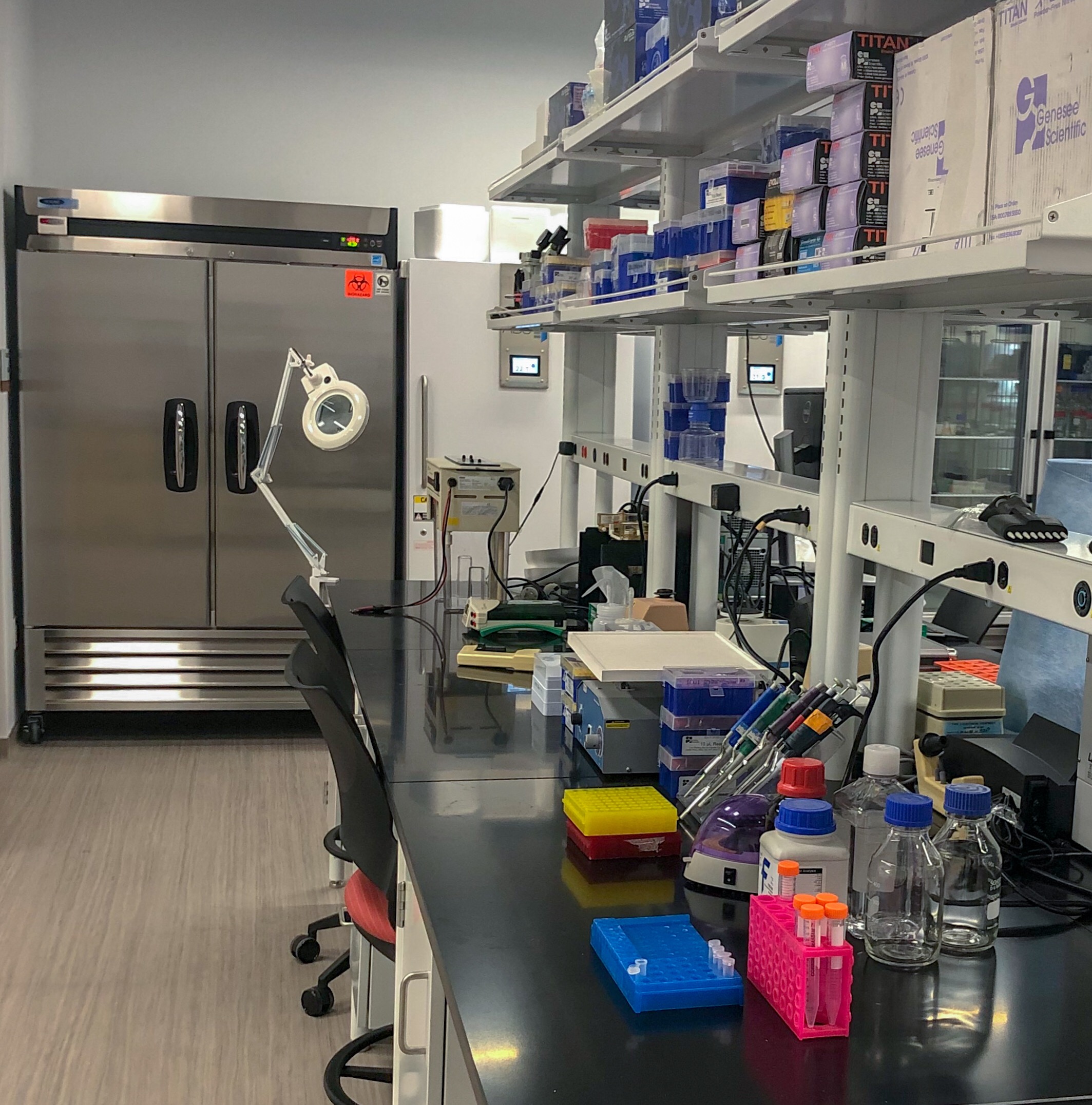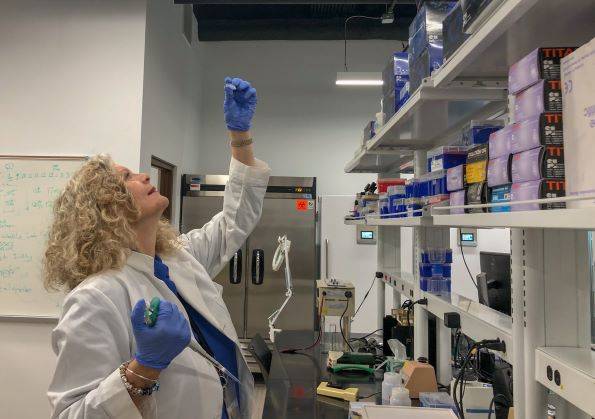Laboratory Information
Research in the U of U's Molecular Ecology and Evolutionary Genetics (MEEG) Laboratory focuses on the study of genetic variation in nonhuman primate populations and the application of molecular techniques to problems in evolutionary and conservation biology. One major focus of our research is the evolution, reproductive and behavioral effects of major histocompatibility complex (MHC) genes in primates. Comparative studies of other mammals, such as foxes and seals, also take place in the lab. Some of our research involves the study of hormones such as cortisol and testosterone. We have international collaborations with scientists working in Europe, Africa, Southeast Asia, Chile, and Brazil. More locally, our collaborators are in Ob-Gyn and Psychology.
The Modern Molecular Genetics Laboratory also serves as the base for the final stages of work for researchers in the Ancient DNA lab and for all of the modern mammalian and nonhuman primate molecular genetic research in the Department of Anthropology.
 Some researchers in this lab study specific regions of the genome to better understand
human and primate health and immune function. Other researchers conduct comparative
genome studies to understand primate evolutionary history. In addition to the genetic
research, the Molecular Genetics Laboratory also houses the endocrinology lab where
assays to evaluate presence and concentrations of steroids and other hormones and
biomarkers for oxidative stress and other measures of health can be conducted. The
new equipment in this lab and the technical expertise promises to offer new opportunities
for collaborations with the School of Biological Sciences, Anthropology and the College
of Social and Behavioral Science.
Some researchers in this lab study specific regions of the genome to better understand
human and primate health and immune function. Other researchers conduct comparative
genome studies to understand primate evolutionary history. In addition to the genetic
research, the Molecular Genetics Laboratory also houses the endocrinology lab where
assays to evaluate presence and concentrations of steroids and other hormones and
biomarkers for oxidative stress and other measures of health can be conducted. The
new equipment in this lab and the technical expertise promises to offer new opportunities
for collaborations with the School of Biological Sciences, Anthropology and the College
of Social and Behavioral Science.
Research in the Immunogenetics and Molecular Ecology laboratory focuses on the study of genetic variation in nonhuman primate populations and the application of molecular techniques to problems in evolutionary and conservation biology. One major focus of our research is the evolution, reproductive and behavioral effects of major histocompatibility complex (MHC) genes in primates. We study microsatellite and mitochondrial variation to gain an insight in population structure in wild primates. Additionally, some of our research involves the study of hormones such as cortisol, testosterone and other steroid hormones and all of these assays can be undertaken using new equipment in the laboratory.
